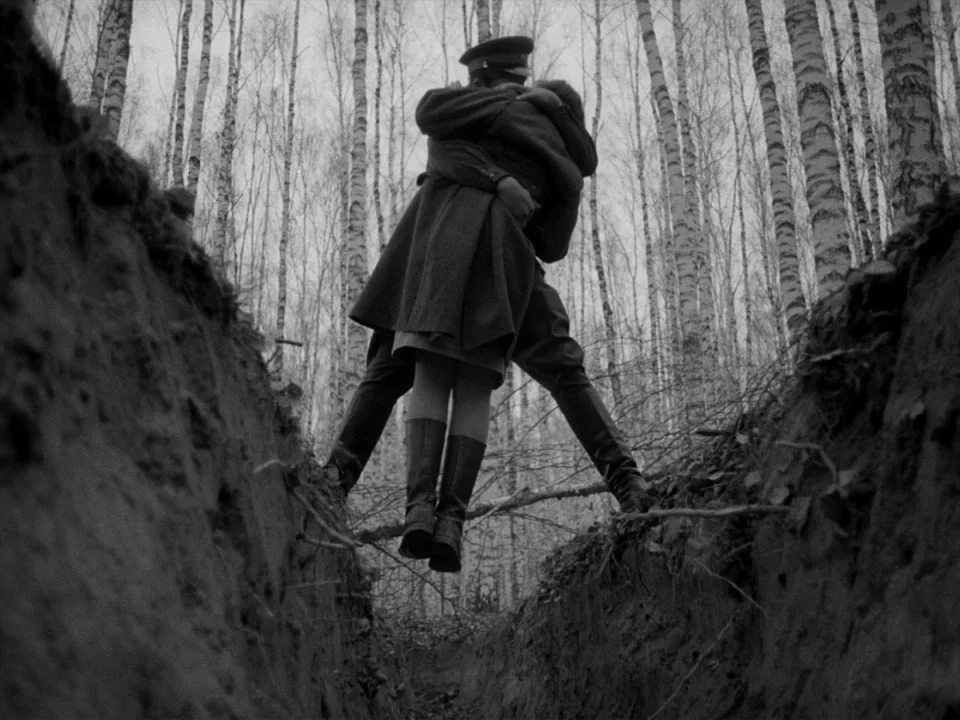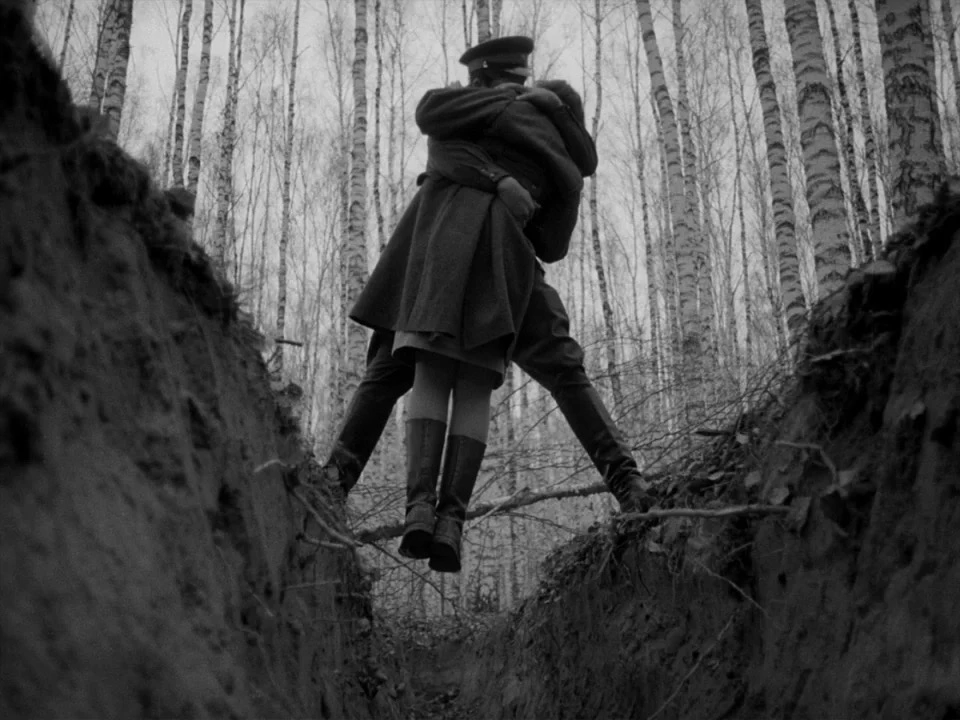Lachin Kerbabaeva – Online Editor
Andrei Tarkovsky is considered one of the most influential authors of world cinema. He was a Soviet director who lived only 54 years and created seven feature films that are considered a masterpiece of cinema and studied in film schools worldwide. In the center of his stories, there is always a person whose fate falls on complex life tests. Tarkovsky created his unique cinematic language, making him one of the most incomprehensible authors of world cinema.
The military drama Ivan’s Childhood came out in 1962. It is the first feature film directed by Tarkovsky. The film is based on the story Ivan by Vladimir Bogomolov. This story is about a 12-year-old boy who lost his childhood due to the outbreak of World War II. His father died on the front. Soldiers of the Third Reich shot his mother and sister. Suddenly an orphaned boy leaves for a military unit and becomes an elusive scout. Crippled by fate, the boy is obsessed with hatred and the desire to avenge the death of his family. This film has stunning cinematography and a heartbreaking story. According to Tarkovsky, he wanted to convey all the unnaturalness of war and chose the theme of childhood because it is the opposite thing to war. The contribution of the film is impossible to convey, and it is quoted by many directors, for example, in the movie Dead Man (1995), The Revenant (2015), and the TV series True Detective (2014-…).

The historical film Andrei Rublev was released in 1966. The film describes the life of Andrei Rublev, a prominent Russian icon painter, taking place at the end of the 14th – beginning of the 15th centuries. The plot is divided into eight novel episodes. Tarkovsky, striving for the truth, demanded Anatoly Solonitsyn, who played the role of Andrei Rublev, not to talk to anyone for three months. He did it because the monk Andrei Rublev takes a vow of silence according to the plot. The actor, all this time, spoke only with gestures and then recalled that he had difficulty developing vocal cords after filming the movie.
The next film Solaris is a science fiction drama directed by Andrei Tarkovsky in 1972. It is based on the novel of the same name by Stanisław Lem. The story is about the ethical problems of humanity, viewed through the prism of contacts with extraterrestrial intelligence. The plot is set in the future on a space station. Scientists are trying to study a distant planet covered in the ocean, Solaris, and scientists come to a standstill. The protagonist, a psychologist, Chris Kelvin, arrives at the space station to deal with what happened to three scientists who have been on the station alone for many years. At first, it seems that the few scientists who survived at the station have gone crazy, but then he experiences a terrible vision: He sees his wife, who committed suicide some time ago. Lem, the book’s author, was very unsatisfied with the film adaptation despite the film’s huge success. Tarkovsky and Lem had a massive fight during the making of the film due to creative differences. In philosophical discussions, the heroes of Tarkovsky refer to the names of Tolstoy, Dostoevsky, Martin Luther, Goethe’s work Faust and ideas of Friedrich Nietzsche.
Tarkovsky’s next film, Stalker (1979), is challenging to classify into one genre. It’s a drama, a philosophical parable, and post-apocalyptic fiction. Three men – the Professor, the Writer, and the Stalker – travel to a mysterious and forbidden territory known as the Zone. It is the place where a meteorite fell 20 years ago. In the Zone, everything is not what it seems; objects there change locations, and landscapes shift and move. The most important thing that attracts people to this dangerous territory is the legend that there is a bunker in which there is a specific room that can fulfill any of the most secret desires. But on the way to the room, people experience their determination and faith in what they really want to achieve.
Tarkovsky lived a short life but made an incredible contribution to the development of cinema. His films inspire, captivate and make the audience think. Many consider him a genius, while others strongly criticize his artsy style. One thing is certain: 36 years have passed since the director’s death, but his works continue to live. Isn’t this the main value for the creator?
kerbl@mail.broward.edu
